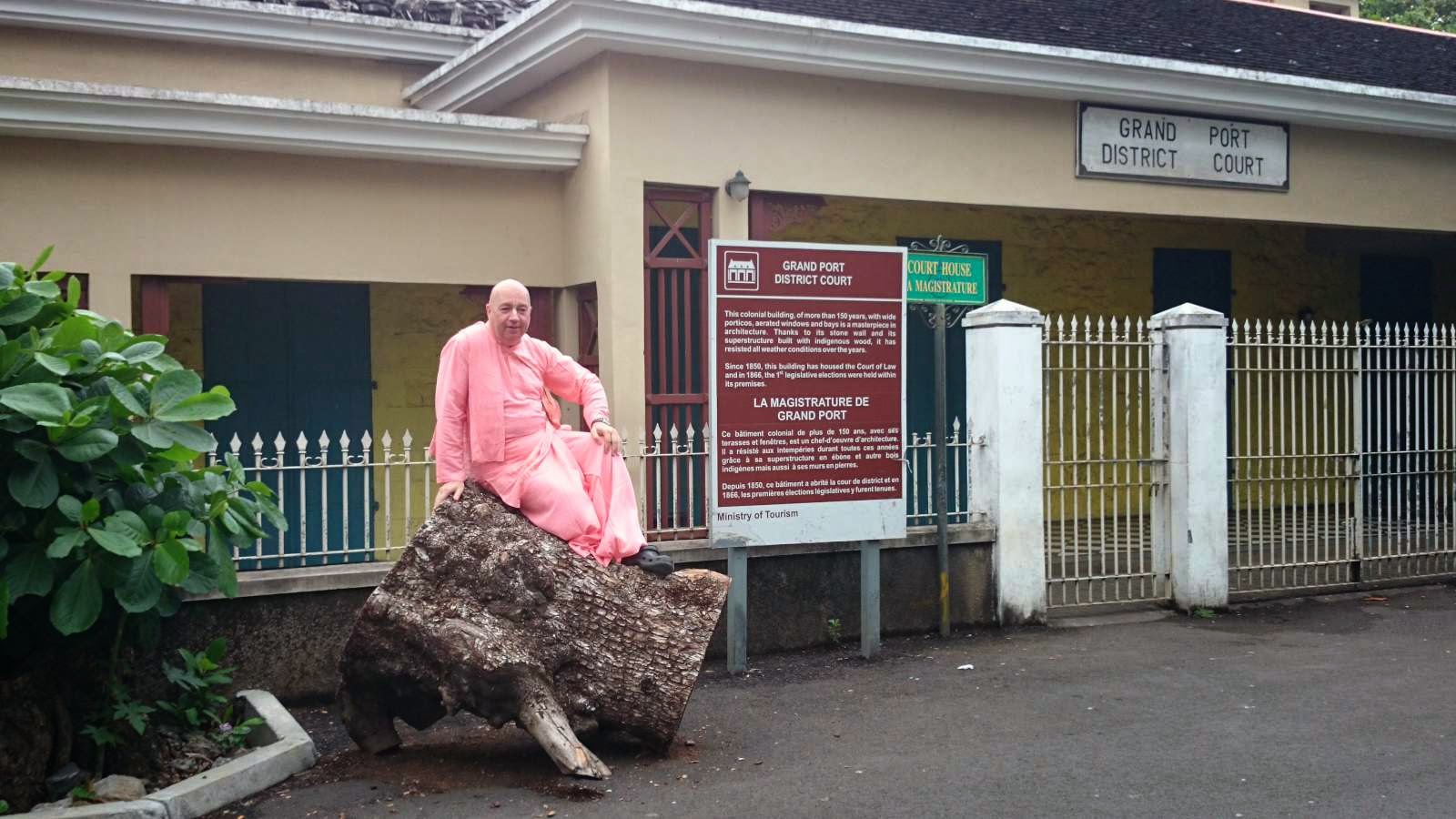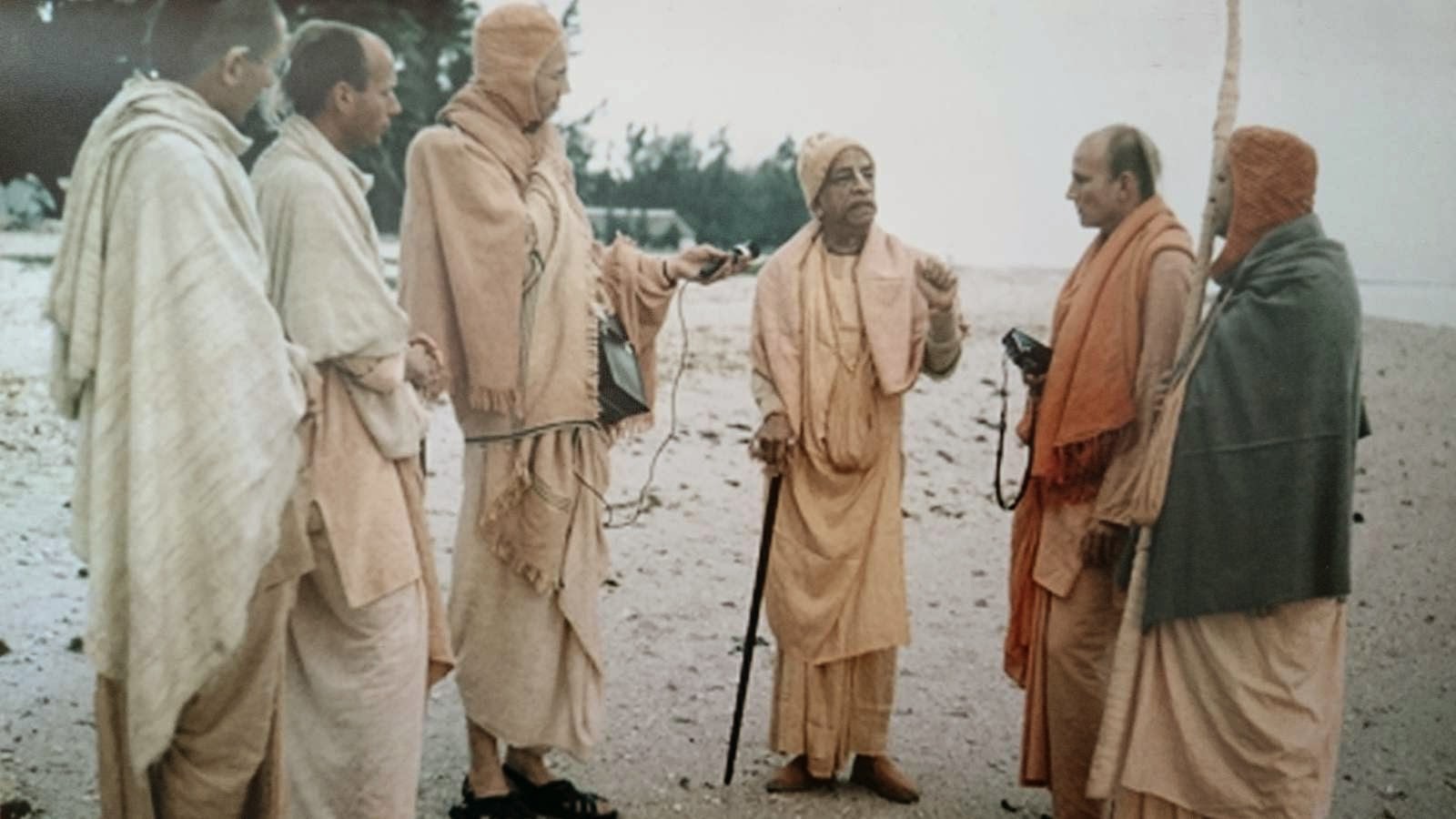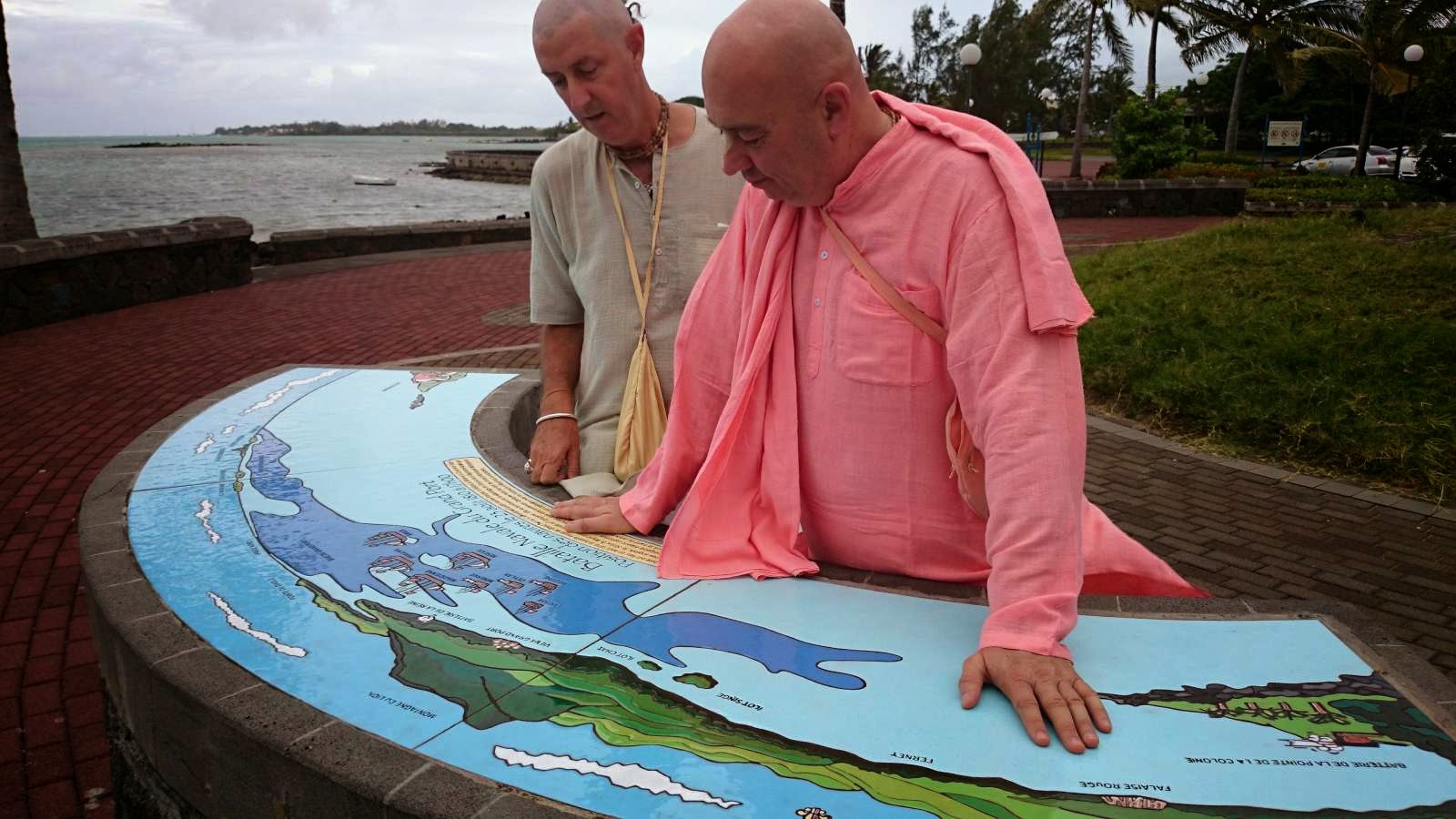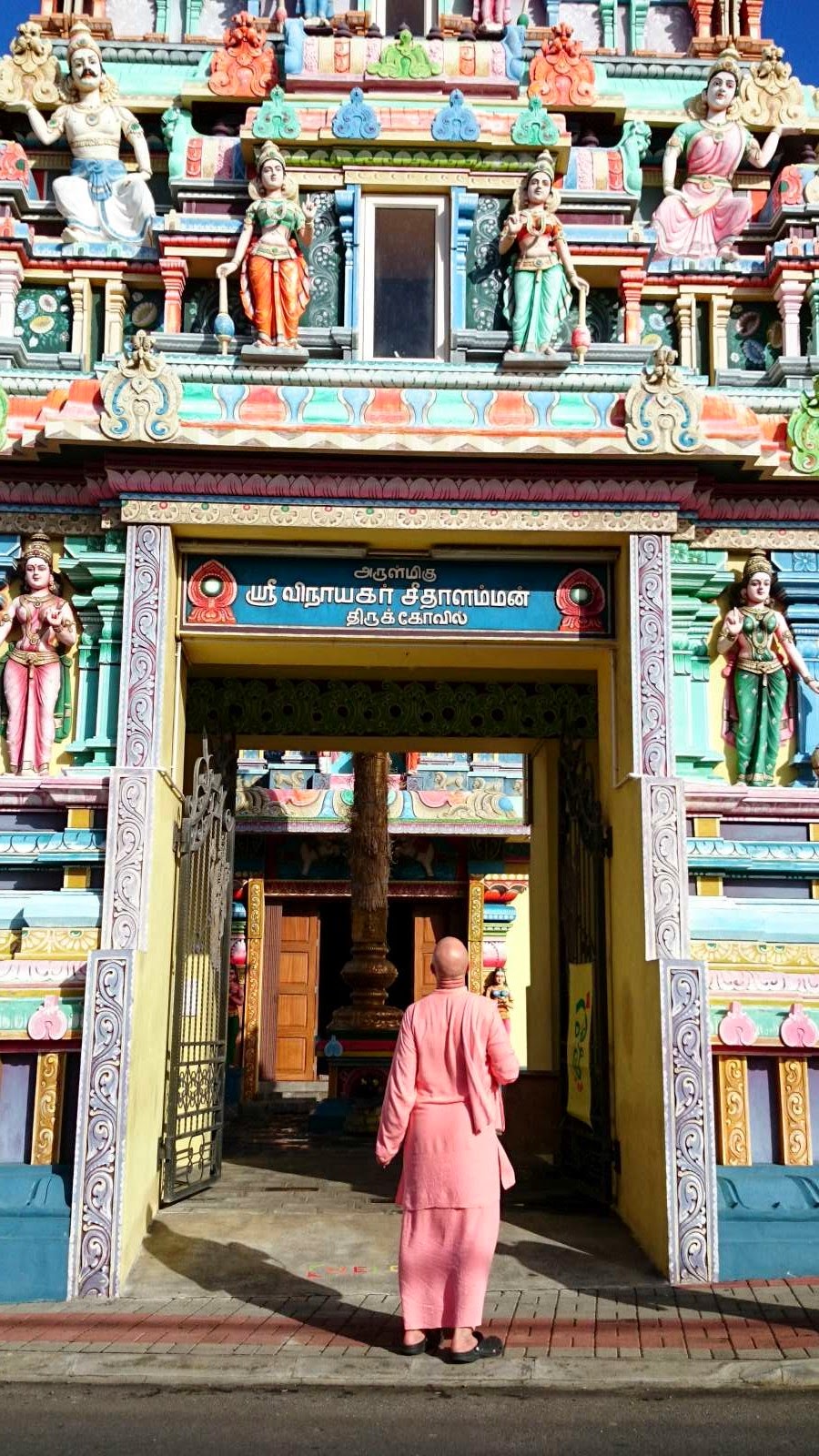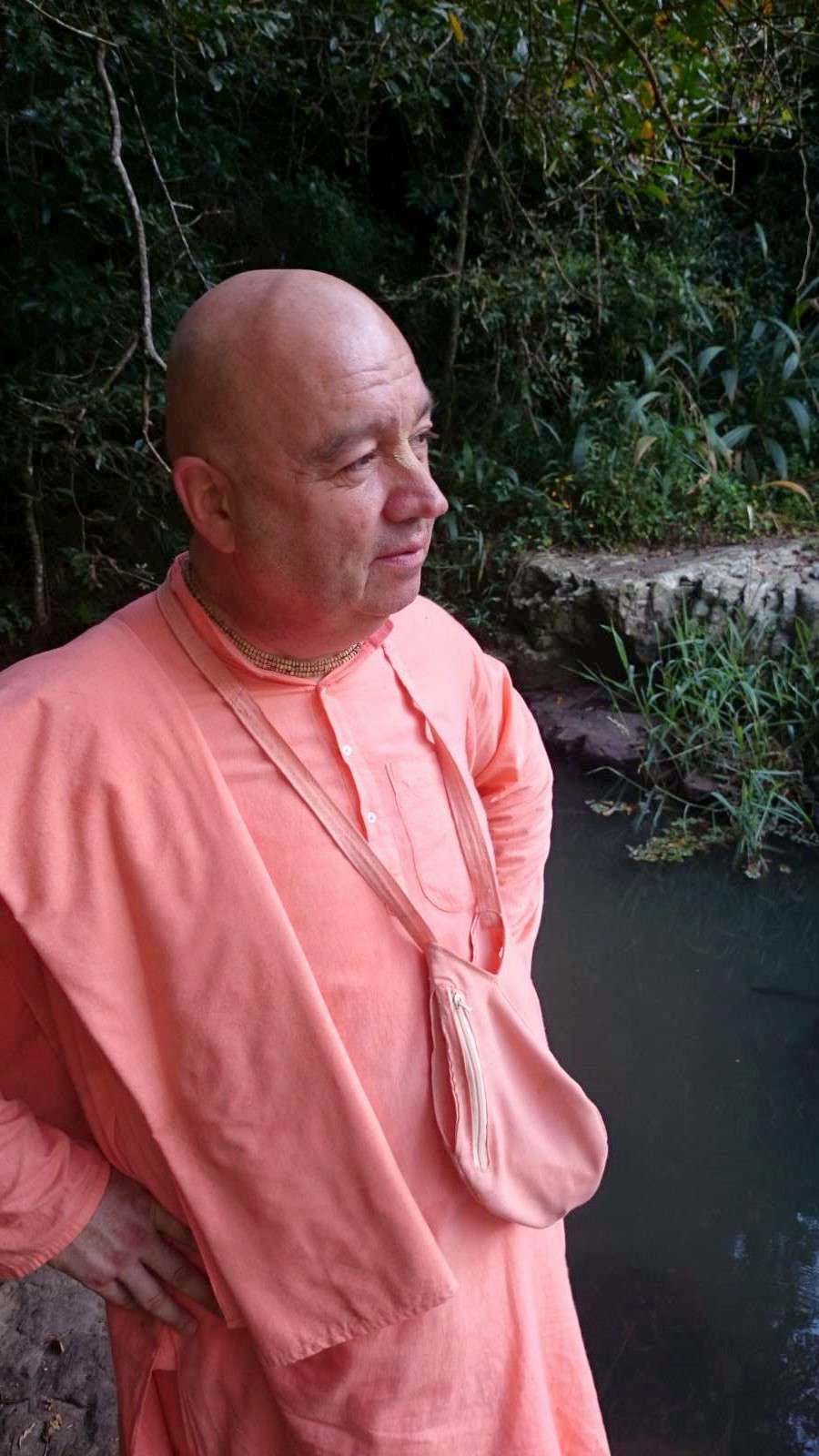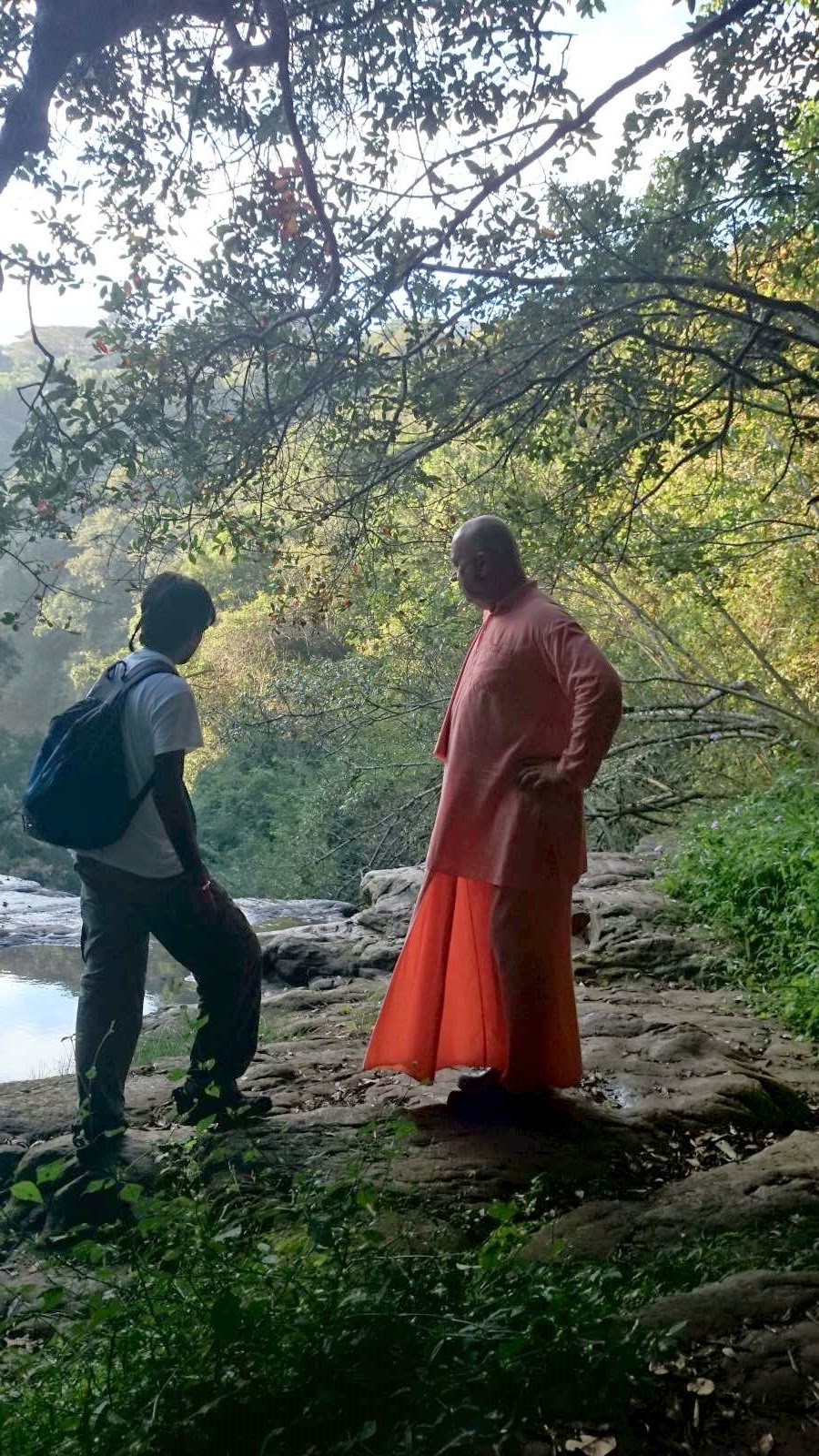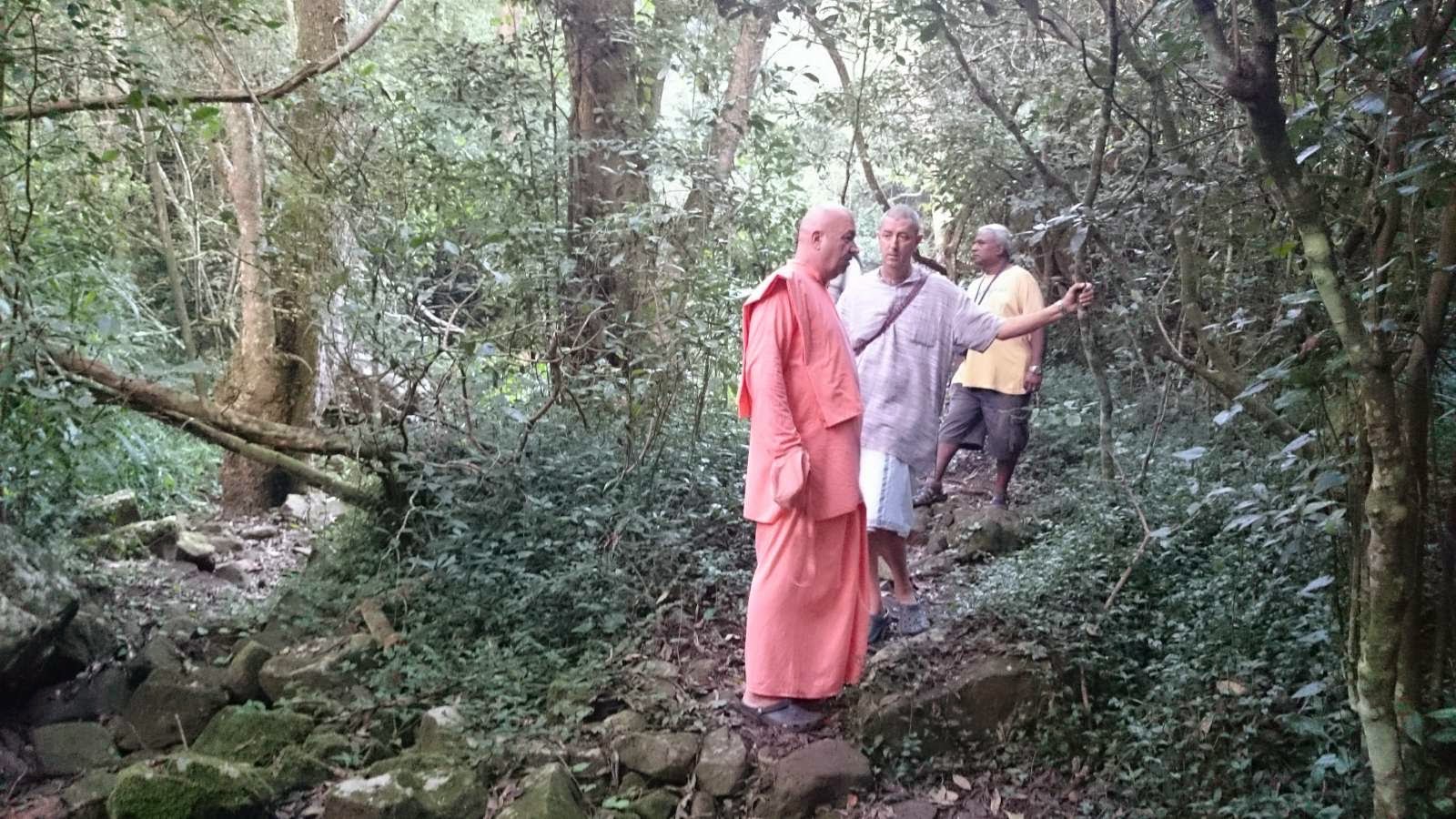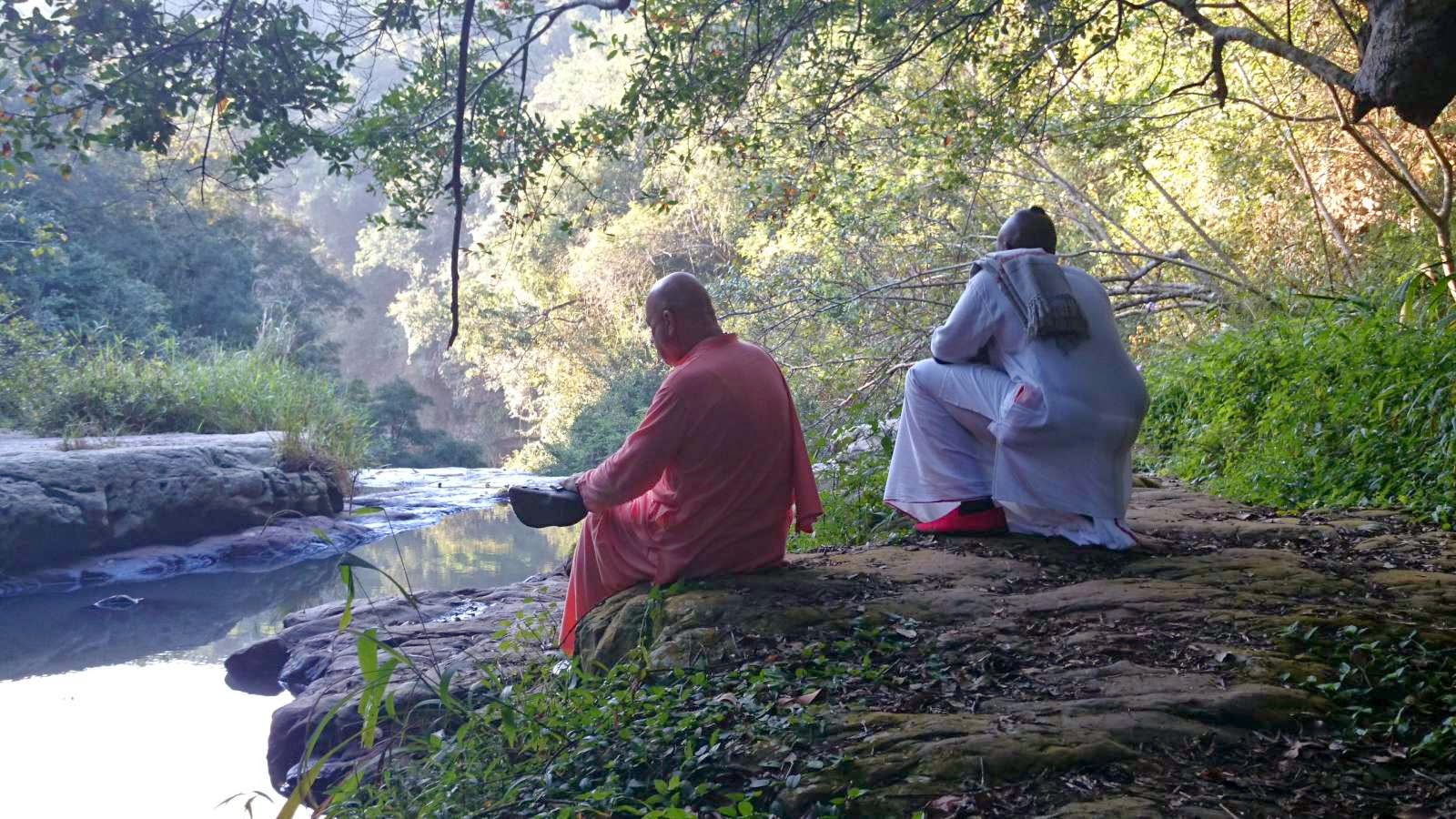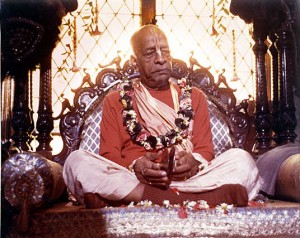 Gītā 15.6 establishes that one who gains the abode of Krishna never leaves it.
Gītā 15.6 establishes that one who gains the abode of Krishna never leaves it.
8.15 establishes… “those who achieve me (mām upetya) are not born again (punar janma nāpnuvanti) in an impermanent and thus miserable ‘house’ / world / body (duḥkhālayam aśāśvatam).”
8.16 says it again just to confirm “those who achieve me (mām upetya) are not born again (punar janma na vidyate).”
What all these quotes establish is that “once we attain the spiritual abode, we never take birth again in the material world.” But they do not establish that we fall from the spiritual realm. In fact they contradict the idea that it is possible to fall from the spiritual realm.
If you enter the Hotel California you won’t come back out. Does that mean the people who are already in the Hotel California can leave? To my knowledge there is no statement anywhere in śāstra that those who are eternally with Krishna can fall away from him, but those who fall away and come back never fall away again. This IS a popular idea among people often giving classes in ISKCON, I admit. But it is not an idea supported by śāstra, to the best of my knowledge.
In fact, śāstra says just the opposite. It says that people in the spiritual world are nitya-siddha - they are always perfect. Those in the material world are nitya-baddha – they were always in the material world. They were bound to this world (baddha) from the ontological very beginning of their being, due to the essence of their individual character.
Thus śāstra calls them anādi-bahirmukha “they have been looking away from Krishna without a beginning, always.”
There are many other quotes from śāstra, equally clear and direct. Śrī Jīva Goswāmī himself explicitly states in his most important book, the ṣaḍ-sandarbha, that no entity can fall from the spiritual world.
Somehow this idea is considered controversial among some ISKCON devotees, but objectively speaking, its not at all controversial, it is very clear. As far as I can see, its only a controversy because devotees misunderstood Prabhupāda and the teachings very early on in the 1970s and have a hard time admitting that they can be wrong, not just individually but collectively and on a philosophical issue.
It is not inappropriate to express the mood of being “fallen” from Krishna. Even Mahaprabhu embraces this mood in the 5th verse of the śikṣāṣṭaka. “patitam mam viṣame bhavāmbudau” — I am fallen into the poisonous ocean of existence. We are in fact fallen in a poisonous ocean of existence. This is an eternally present fact, not something that occurred at a particular point in time. This is what the early devotees and followers of Śrīla Prabhupāda didn’t completely grasp correctly — which is nothing to criticize. It is natural. It is a complex philosophy. The only thing worth criticizing is the inability to admit fallibility and move forward with a more clear understanding that actually represents Śrīla Prabhupāda’s sampradaya.
I think that’s why Śrīla Prabhupāda indicated that it would take a long time before ISKCON would really take its true shape, “the children of your children” he said. 2 generations. Now we are still at the beginning of the 1st generation since Prabhupāda – so things are still almost jut starting to fix themselves up. But there is a bright future.


 Sri Jagannatha Mandir organized harinam at Kampung Pandan on 26/04/14. This was the second harinam for the month. Once again the Holy name was spread to a new place where it was never heard before. Residents were very receptive and enthusiastic to know more about the “Hare krishnas”. 45 small books and 42 chanting beads were distributed to those eager souls. 200 full meal prasadam was served in the area.
Read more ›
Sri Jagannatha Mandir organized harinam at Kampung Pandan on 26/04/14. This was the second harinam for the month. Once again the Holy name was spread to a new place where it was never heard before. Residents were very receptive and enthusiastic to know more about the “Hare krishnas”. 45 small books and 42 chanting beads were distributed to those eager souls. 200 full meal prasadam was served in the area.
Read more ›  Sri Jagannatha Mandir organized harinam at Kampung Pandan on 26/04/14. This was the second harinam for the month. Once again the Holy name was spread to a new place where it was never heard before. Residents were very receptive and enthusiastic to know more about the “Hare krishnas”. 45 small books and 42 chanting beads were distributed to those eager souls. 200 full meal prasadam was served in the area.
Read more ›
Sri Jagannatha Mandir organized harinam at Kampung Pandan on 26/04/14. This was the second harinam for the month. Once again the Holy name was spread to a new place where it was never heard before. Residents were very receptive and enthusiastic to know more about the “Hare krishnas”. 45 small books and 42 chanting beads were distributed to those eager souls. 200 full meal prasadam was served in the area.
Read more › 

















